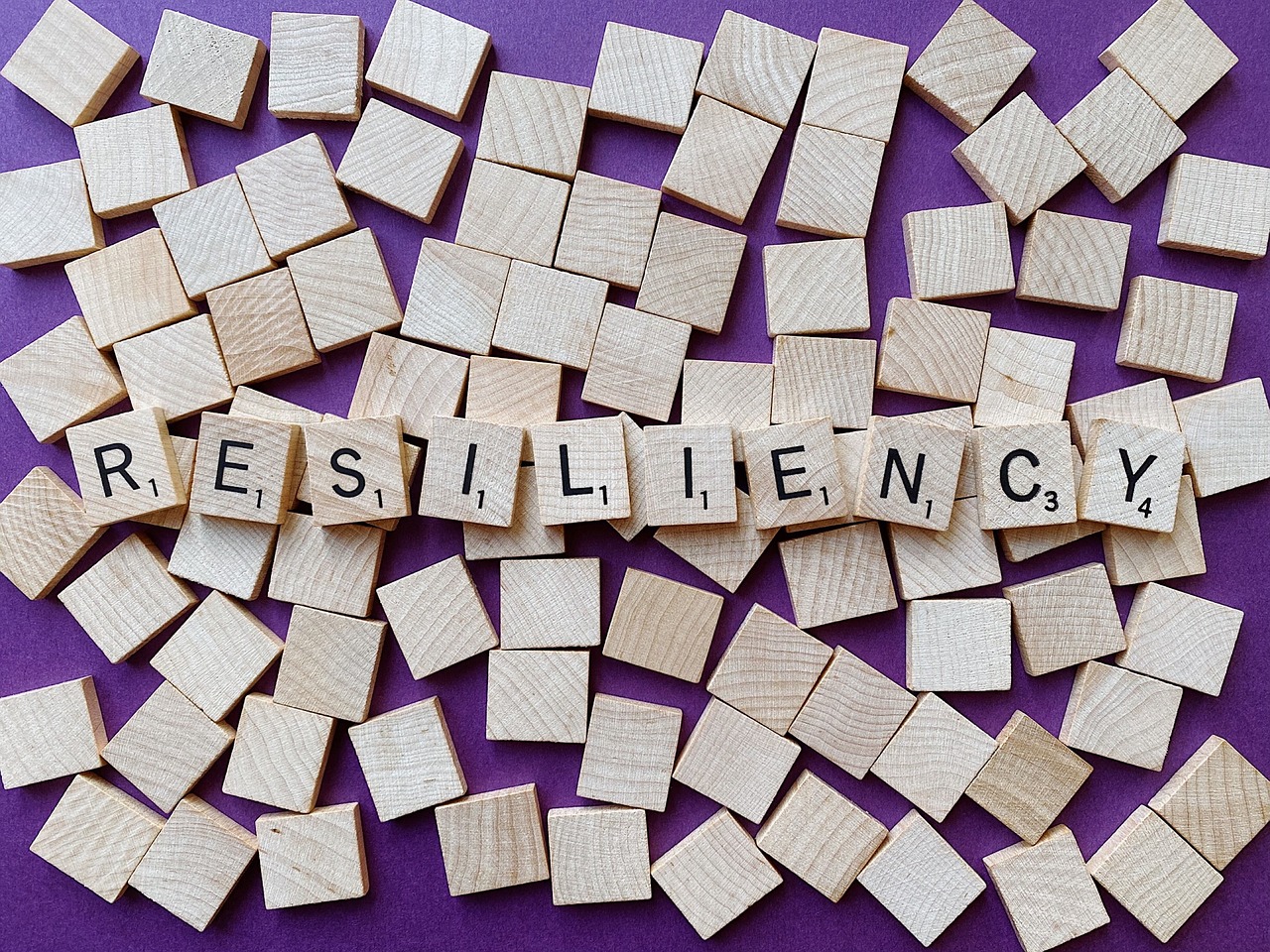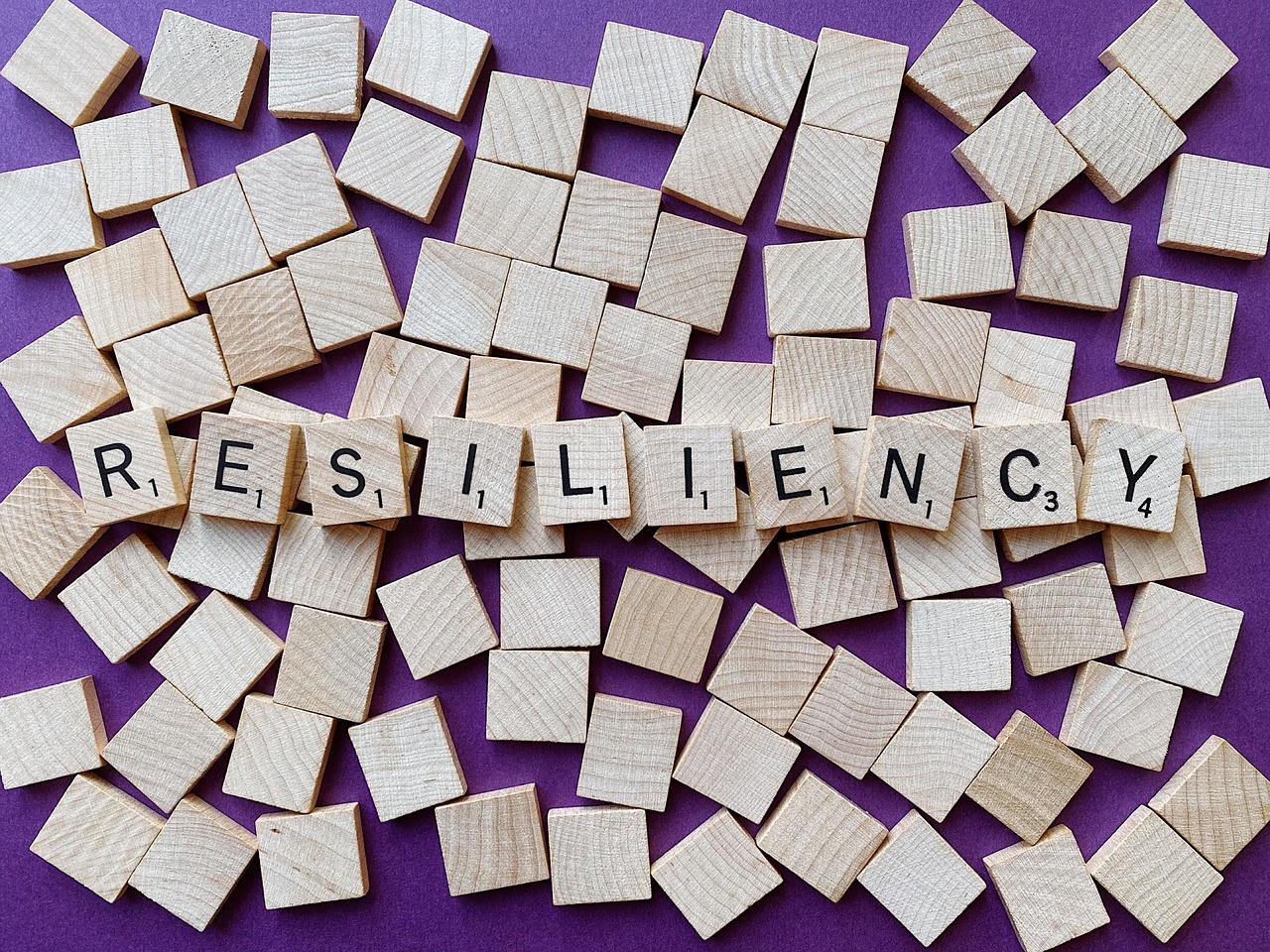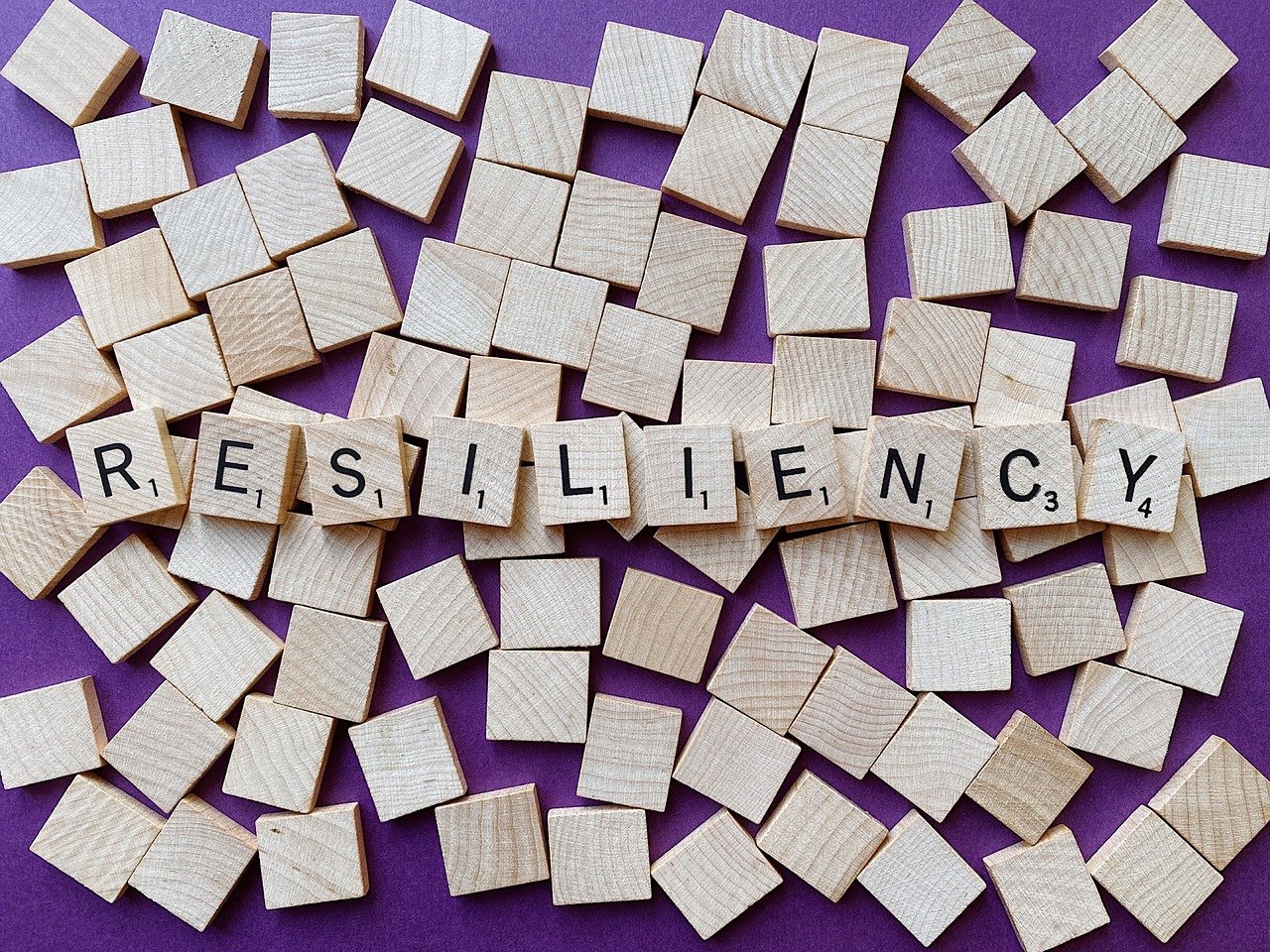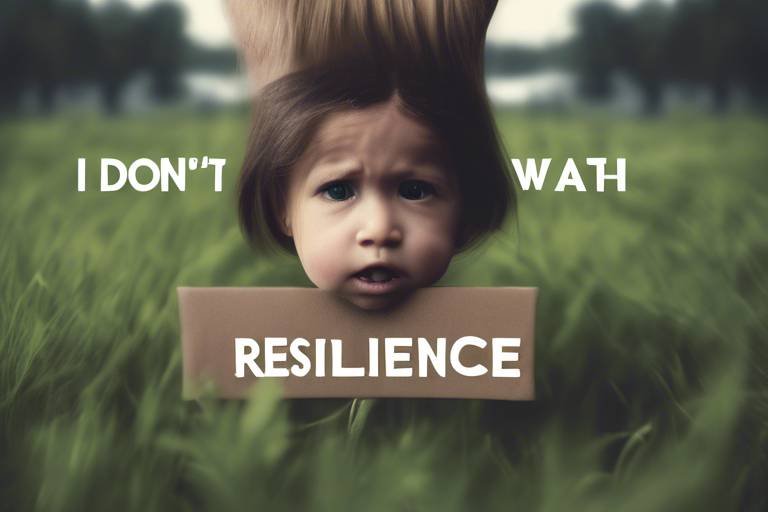The Role of Resilience in Managing Chronic Illness
Living with a chronic illness can often feel like navigating through a storm without a compass. The unpredictability of symptoms, the constant need for medical care, and the emotional burden can weigh heavily on anyone. However, the concept of resilience emerges as a beacon of hope in these turbulent waters. Resilience is not just about bouncing back from challenges; it’s about adapting positively and finding strength in adversity. This article explores how resilience significantly impacts the management of chronic illnesses, offering strategies that enhance coping mechanisms, emotional well-being, and overall quality of life for those facing long-term health challenges.
So, what is resilience exactly? At its core, resilience is the ability to withstand stress and recover from setbacks. It’s like a rubber band; while it may stretch under pressure, it can return to its original shape when the pressure is released. For individuals coping with chronic illnesses, resilience plays a crucial role in their ability to manage daily challenges. It empowers them to face their health conditions with a sense of control and optimism. This ability to adapt not only helps in managing symptoms but also fosters a more positive outlook on life, which can be incredibly beneficial for emotional health.
Chronic illnesses often carry a heavy psychological toll. The emotional challenges can be just as debilitating as the physical symptoms. Individuals may find themselves grappling with feelings of frustration, sadness, and even isolation. It’s essential to recognize these emotional responses as valid reactions to their circumstances. Here’s where resilience steps in as a powerful ally. By fostering resilience, individuals can mitigate the negative mental health outcomes that often accompany chronic illnesses.
It's not uncommon for individuals with chronic illnesses to experience a rollercoaster of emotions. Some of the most common emotional responses include:
- Anxiety: Worrying about the future and managing symptoms can lead to heightened anxiety levels.
- Depression: The persistent nature of chronic illness can contribute to feelings of hopelessness.
- Frustration: Dealing with limitations and constant medical appointments can be incredibly frustrating.
Resilience can help individuals navigate these emotional waters more effectively. By acknowledging and addressing these feelings, they can develop healthier coping mechanisms and improve their overall emotional well-being.
Understanding one’s emotional state is vital in the journey of managing chronic illness. Emotional awareness involves recognizing and acknowledging feelings without judgment. This practice can foster resilience by empowering individuals to express their emotions constructively. When people become aware of their emotional triggers, they can better prepare themselves to cope with challenges. Techniques such as journaling or mindfulness can enhance emotional awareness, allowing individuals to process their feelings and respond to them in healthier ways.
Effective coping strategies are essential for building resilience. Here are a few techniques that can help individuals enhance their ability to deal with the challenges posed by chronic illnesses:
- Mindfulness: Practicing mindfulness can help individuals stay grounded and focused, reducing anxiety and promoting emotional regulation.
- Physical Activity: Regular exercise can improve mood and physical health, making it easier to cope with symptoms.
- Creative Outlets: Engaging in creative activities can provide a sense of accomplishment and joy, serving as a powerful distraction from pain.
By integrating these strategies into their daily lives, individuals can cultivate resilience and improve their overall quality of life.
Let’s not forget the power of community! Social support networks play a significant role in fostering resilience. Having friends, family, or support groups can provide emotional comfort and practical assistance. These relationships can act as a safety net, allowing individuals to share their experiences and feelings without fear of judgment. It’s like having a lifeline in a stormy sea, reminding them that they are not alone in their journey.
Building resilience doesn’t happen overnight; it requires practice and commitment. Here are some practical techniques that can help:
Mindfulness practices can enhance resilience by promoting emotional regulation. Techniques such as meditation, deep breathing, and yoga can help individuals manage stress and cultivate a sense of calm amidst the chaos of chronic illness.
Adopting a positive mindset is vital for resilience. Positive thinking and affirmations can reshape perceptions and improve health outcomes. By focusing on strengths rather than limitations, individuals can foster a more optimistic outlook on their health journey.
Healthcare providers play a crucial role in fostering resilience in patients. They can support individuals in developing resilience through education and encouragement. By providing patients with the knowledge and tools they need, healthcare providers empower them to take control of their health.
Educating patients about their conditions can empower them. Knowledge is a powerful tool that can enhance self-management skills and build resilience. When individuals understand their health conditions, they are better equipped to make informed decisions about their care.
Self-advocacy is key to resilience. Healthcare providers can encourage patients to take an active role in their health management and decision-making. By fostering a sense of agency, individuals can feel more in control of their health journeys and more resilient in the face of challenges.
In conclusion, resilience is a vital component in managing chronic illness. By fostering resilience through various strategies, individuals can improve their quality of life and navigate their health journeys more effectively. Embracing resilience not only helps in coping with the challenges of chronic illness but also allows individuals to thrive despite them.
Q: What is resilience?
A: Resilience is the ability to adapt positively to adversity and recover from challenges.
Q: How can I build resilience while managing a chronic illness?
A: You can build resilience through mindfulness practices, positive thinking, and developing effective coping strategies.
Q: Why is social support important for resilience?
A: Social support provides emotional comfort and practical assistance, helping individuals feel less isolated in their journey.

Understanding Resilience
Resilience is more than just a buzzword; it’s a powerful trait that allows individuals to bounce back from adversity. Imagine a rubber band that stretches but never breaks; that’s what resilience is all about. It’s the ability to adapt positively to challenging circumstances, especially for those grappling with chronic illnesses. When faced with the unrelenting nature of conditions like diabetes, arthritis, or heart disease, resilient individuals find ways to cope, adapt, and thrive despite their health challenges.
But why is resilience so important? Well, it’s not just about enduring tough times; it’s about transforming those experiences into opportunities for growth. Resilience empowers individuals to maintain a sense of control over their lives, even when their health seems to dictate otherwise. It’s like having a mental toolkit filled with strategies to navigate the stormy seas of chronic illness. This toolkit includes emotional regulation, problem-solving skills, and the ability to seek help when needed.
Research has shown that resilient individuals tend to experience better emotional and physical health outcomes. They are more likely to engage in healthy behaviors, adhere to treatment plans, and maintain positive relationships. In essence, resilience acts as a buffer against the stressors associated with chronic illness, allowing individuals to manage their conditions more effectively. Here are some key aspects of resilience:
- Adaptability: The ability to adjust to new circumstances and challenges.
- Emotional Regulation: Managing emotions effectively to prevent overwhelm.
- Social Connections: Building and maintaining supportive relationships.
- Self-Efficacy: Believing in one’s ability to influence outcomes and make decisions.
To truly understand resilience, it’s essential to recognize that it’s not a fixed trait; rather, it’s a dynamic process that can be cultivated over time. Just like building muscle, developing resilience requires practice and commitment. Individuals can enhance their resilience by engaging in activities that promote emotional awareness, seeking support from loved ones, and employing coping strategies tailored to their unique circumstances.
In summary, resilience is a critical factor in managing chronic illnesses. It not only helps individuals cope with the day-to-day challenges of their conditions but also fosters a sense of hope and empowerment. By understanding and nurturing resilience, those living with chronic illnesses can improve their quality of life and navigate their health journeys with greater confidence.

The Psychological Impact of Chronic Illness
Living with a chronic illness can feel like navigating a stormy sea, where the waves of uncertainty and emotional turmoil crash against you. The psychological impact of chronic conditions often extends far beyond the physical symptoms, creating a complex web of challenges that can affect every aspect of life. This emotional toll can manifest in various ways, including feelings of isolation, anxiety, and depression. It’s crucial to understand these psychological challenges to effectively manage them and cultivate resilience.
Imagine waking up every day with a reminder of your condition. For many, the constant presence of pain or fatigue can lead to a sense of hopelessness. Over time, this can result in significant emotional distress. Studies have shown that individuals with chronic illnesses are at a higher risk for mental health issues compared to the general population. This disparity is often due to the ongoing stress of managing a long-term health condition, which can lead to:
- Anxiety: The uncertainty surrounding health outcomes can create a perpetual state of worry.
- Depression: Feelings of sadness or despair can arise from the limitations imposed by chronic illness.
- Social Withdrawal: Patients may isolate themselves due to embarrassment or fear of being a burden to others.
Resilience plays a pivotal role in counteracting these negative psychological effects. It acts as a protective shield, enabling individuals to adapt to their circumstances and maintain a sense of hope. When faced with the emotional challenges of chronic illness, resilient individuals often display a more positive outlook, which can significantly enhance their quality of life.
One of the key aspects of resilience is emotional awareness. Understanding and acknowledging one’s feelings is essential in managing the psychological impact of chronic illness. When individuals can identify their emotional states, they are better equipped to address them. This awareness leads to healthier coping mechanisms, allowing for a more proactive approach to mental health.
Furthermore, developing effective coping strategies is crucial in this journey. Techniques such as cognitive-behavioral therapy, journaling, and engaging in hobbies can foster resilience. These strategies not only help in managing emotions but also promote a sense of control over one’s life, which is often diminished by chronic illness.
In summary, the psychological impact of chronic illness is profound and multifaceted. By recognizing the emotional challenges and actively working to build resilience, individuals can navigate their health journeys with greater ease and improved emotional well-being. Understanding this interplay between chronic illness and mental health is vital for both patients and healthcare providers, as it lays the foundation for a holistic approach to treatment.
- What are the common psychological effects of chronic illness? Chronic illness can lead to anxiety, depression, and social withdrawal.
- How can resilience help in managing chronic illness? Resilience helps individuals adapt to challenges, maintain hope, and improve their overall quality of life.
- What strategies can enhance resilience? Techniques such as emotional awareness, coping strategies, mindfulness, and positive thinking can enhance resilience.

Common Emotional Responses
Living with a chronic illness is like navigating a stormy sea; the waves of emotions can be overwhelming and unpredictable. Individuals facing long-term health challenges often find themselves grappling with a myriad of feelings. Some of the most common emotional responses include anxiety, depression, and frustration. Each of these emotions can significantly affect a person's quality of life, making it essential to understand and address them effectively.
Anxiety often creeps in like a shadow, casting doubt and fear over everyday activities. Patients may worry about their health deteriorating, the financial burden of treatment, or the impact of their illness on loved ones. This constant state of worry can lead to a vicious cycle, where anxiety exacerbates physical symptoms, creating a feedback loop that is hard to break.
Depression, on the other hand, can feel like a heavy fog that envelops everything, making it difficult to find joy in life. It's not uncommon for individuals with chronic illnesses to experience feelings of hopelessness or worthlessness, especially when faced with the limitations imposed by their condition. This emotional toll can further hinder their ability to manage their health effectively.
Frustration is another common emotional response. Imagine trying to climb a mountain with a boulder strapped to your back; that's what living with a chronic illness can feel like. The constant struggle to maintain normalcy, coupled with physical limitations, can lead to feelings of irritation and anger, both at oneself and the situation.
To effectively manage these emotional responses, resilience plays a crucial role. Building resilience allows individuals to bounce back from these emotional lows and regain control. Here are some common emotional responses summarized in the table below:
| Emotional Response | Description | Impact on Life |
|---|---|---|
| Anxiety | A feeling of worry or fear about health and future | Can lead to avoidance of activities and increased stress |
| Depression | A state of low mood and aversion to activity | Can hinder motivation and affect relationships |
| Frustration | Feelings of annoyance or anger due to limitations | Can lead to outbursts and withdrawal from social interactions |
Recognizing these emotional responses is the first step in managing them effectively. By acknowledging feelings of anxiety, depression, and frustration, individuals can begin to address them head-on, seeking support from friends, family, or professionals. The journey of managing chronic illness is not easy, but with resilience, individuals can navigate these emotional waters more smoothly.
- What are the signs of emotional distress in chronic illness? Common signs include persistent sadness, mood swings, and withdrawal from social activities.
- How can I improve my resilience? Techniques such as mindfulness, positive thinking, and building a support network can enhance resilience.
- Is it normal to feel overwhelmed? Yes, feeling overwhelmed is a common response to the challenges of managing a chronic illness.
- When should I seek professional help? If feelings of anxiety or depression persist, seeking help from a mental health professional is advisable.

Building Emotional Awareness
Building emotional awareness is a fundamental step for anyone managing a chronic illness. It's like having a compass that guides you through the stormy seas of emotional turmoil. When you're aware of your feelings, you can better understand what you're experiencing and why. This understanding can lead to more effective coping strategies, helping you to navigate the emotional ups and downs that often accompany long-term health challenges.
So, how do you cultivate this emotional awareness? It starts with self-reflection. Taking time to sit quietly and check in with yourself can be incredibly beneficial. Ask yourself questions like, "How am I feeling right now?" or "What triggered this emotion?" Keeping a journal can also be a powerful tool. By writing down your thoughts and feelings, you create a record that can help you identify patterns over time. You might discover that certain situations consistently lead to feelings of anxiety or frustration, which is the first step in addressing those triggers.
Additionally, practicing mindfulness can enhance your emotional awareness. Mindfulness encourages you to be present in the moment, observing your thoughts and feelings without judgment. This practice can help you recognize emotions as they arise, allowing you to process them more effectively rather than letting them fester. For example, if you notice feelings of sadness creeping in, instead of pushing them away, acknowledge them. Ask yourself what might be causing this sadness and how you can address it.
It's also important to remember that emotional awareness isn't just about recognizing negative emotions. It's equally crucial to acknowledge positive feelings. Celebrating small victories, no matter how minor they may seem, can significantly boost your emotional resilience. Consider creating a gratitude list where you jot down things that make you happy or proud. This practice not only enhances emotional awareness but also shifts your focus toward the positive aspects of your life.
Incorporating these practices into your daily routine can create a solid foundation for emotional resilience. Ultimately, the more you understand your emotions, the better equipped you'll be to manage the challenges that come with chronic illness. Remember, building emotional awareness is a journey, not a destination. Be patient with yourself as you navigate this path; every step you take is a step toward a more resilient you.
- What is emotional awareness?
Emotional awareness is the ability to recognize and understand your own emotions and how they affect your thoughts and behaviors. - How can I improve my emotional awareness?
You can improve your emotional awareness through self-reflection, mindfulness practices, and journaling. - Why is emotional awareness important for managing chronic illness?
Being emotionally aware helps you identify triggers and develop effective coping strategies, ultimately leading to better emotional health and resilience. - Can positive emotions impact my chronic illness?
Yes, recognizing and celebrating positive emotions can enhance your overall well-being and resilience, making it easier to cope with challenges.

Developing Coping Strategies
When it comes to managing chronic illness, developing effective coping strategies is not just a good idea; it's essential. Think of coping strategies as your personal toolkit for navigating the rough waters of chronic health challenges. Just like a sailor needs a sturdy ship and the right tools to weather a storm, individuals facing chronic conditions need strategies that empower them to take control of their health and emotional well-being.
One of the first steps in developing these strategies is to understand that coping isn't a one-size-fits-all solution. What works for one person might not resonate with another, so it's crucial to explore various techniques. Here are some effective coping strategies that have proven beneficial for many:
- Mindfulness Meditation: This practice allows individuals to stay present and grounded, reducing anxiety and promoting emotional regulation. By focusing on the here and now, you can distance yourself from overwhelming thoughts about the future.
- Journaling: Writing about your thoughts and feelings can be cathartic. It helps in processing emotions and can often lead to insights that might not surface in everyday life.
- Physical Activity: Engaging in regular exercise, even in small amounts, can significantly improve mood and energy levels. It releases endorphins, the body's natural mood lifters.
- Creative Outlets: Whether it’s painting, knitting, or playing music, creative activities can serve as a powerful distraction and a way to express feelings that are hard to articulate.
Additionally, it's important to recognize the role of social connections in coping. Building a support network can make a world of difference. Surrounding yourself with understanding friends and family can provide emotional support and practical help. Sharing experiences with others who understand your journey can foster a sense of belonging and reduce feelings of isolation.
Moreover, setting small, achievable goals can enhance your sense of accomplishment and motivation. Rather than overwhelming yourself with the big picture, break tasks down into manageable steps. Celebrate each small victory, as these moments can bolster your resilience and remind you that progress is possible, even in the face of chronic illness.
In conclusion, developing coping strategies is a dynamic process that requires exploration, patience, and adaptability. By experimenting with different techniques and leaning on your support system, you can create a personalized approach to managing your health challenges. Remember, it’s not just about enduring; it’s about thriving despite the circumstances.
Q: What are some signs that I need to develop new coping strategies?
A: If you find yourself feeling overwhelmed, anxious, or unable to manage daily tasks, it might be time to explore new coping strategies. Signs include increased irritability, withdrawal from social activities, or difficulty concentrating.
Q: Can coping strategies be learned?
A: Absolutely! Many coping strategies can be learned and refined over time. Engaging in workshops, therapy, or support groups can help you discover new techniques that resonate with you.
Q: How long does it take to see results from new coping strategies?
A: The timeline varies for everyone. Some may notice immediate benefits, while others might need weeks or even months to see significant changes. Consistency and patience are key!

Social Support and Resilience
When it comes to managing chronic illnesses, social support is not just a luxury; it’s a lifeline. Imagine trying to navigate a stormy sea without a life raft. That’s what dealing with a chronic illness can feel like without a solid support system. Friends, family, and community can provide the emotional buoyancy needed to stay afloat amidst the waves of health challenges. Research consistently shows that individuals with strong social networks tend to cope better with the psychological stressors associated with chronic conditions. But why is that the case?
Firstly, having a support system can significantly reduce feelings of isolation and loneliness, which are common among those facing long-term health issues. When you have someone to share your thoughts and feelings with, it can lessen the emotional burden. Supportive relationships act as a buffer against the negative effects of stress, helping individuals to maintain a more positive outlook on their health journey. This is particularly important because a positive mindset can lead to better health outcomes.
Moreover, social support can manifest in various forms. It can be practical, like helping with daily tasks or providing transportation to medical appointments. Emotional support, on the other hand, involves listening, understanding, and validating feelings. Both types are crucial for building resilience. For example, a friend who offers to accompany you to a doctor’s visit not only provides logistical assistance but also emotional support, making you feel less alone in your struggles.
Additionally, community involvement can play a pivotal role in enhancing resilience. Participating in support groups or community activities can foster a sense of belonging and purpose. These settings allow individuals to connect with others who understand their experiences, creating a shared space for healing and growth. In fact, many people find that sharing their stories in a supportive group can be incredibly empowering, helping them to reclaim their narrative and strengthen their coping mechanisms.
However, it’s important to note that not all social interactions are beneficial. Toxic relationships can drain your energy and exacerbate feelings of stress and anxiety. Therefore, it’s essential to cultivate a network of positive influences. Surrounding yourself with individuals who uplift and inspire you can make a world of difference in your resilience journey.
In summary, social support is a vital component in fostering resilience for those managing chronic illnesses. It’s like having a safety net that catches you when you fall and helps you bounce back stronger. So, whether it’s a friend, family member, or a community group, nurturing these relationships can significantly enhance your ability to cope with health challenges. Remember, you don’t have to face this journey alone; reaching out for support is a sign of strength, not weakness.
- How can I find social support for my chronic illness?
Consider joining support groups, either in-person or online, where you can connect with others facing similar challenges. Local community centers or hospitals often have resources available. - What if my friends and family don’t understand my illness?
Communicate openly about your experiences and feelings. Sometimes, providing educational materials can help them understand what you’re going through. - Can social support really improve my health outcomes?
Absolutely! Studies have shown that strong social connections can lead to better emotional well-being, which positively impacts physical health.

Resilience-Building Techniques
Building resilience is like strengthening a muscle; the more you work on it, the more robust it becomes. There are several techniques that individuals can adopt to enhance their resilience when managing chronic illnesses. One of the most effective methods is mindfulness. Mindfulness practices encourage individuals to focus on the present moment, promoting emotional regulation and reducing stress. Simple activities such as deep breathing, meditation, or even mindful walking can significantly improve one’s ability to cope with the daily challenges posed by chronic health conditions.
Another powerful tool in the resilience toolbox is the practice of positive thinking. It’s easy to fall into a negative mindset when faced with health struggles, but shifting your perspective can make a world of difference. Positive affirmations, for example, can help reshape perceptions and instill a sense of hope and determination. You might say to yourself, “I am capable of managing my health,” or “Every day, I am getting stronger.” These affirmations act like a mental shield against negativity, empowering you to face challenges head-on.
Additionally, setting realistic goals can play a crucial role in building resilience. Goals provide direction and a sense of purpose, which can be incredibly motivating. When setting goals, it’s essential to break them down into manageable steps. For instance, if your goal is to improve your physical health, you might start with small, achievable objectives such as walking for 10 minutes a day. Celebrating these small victories can boost your confidence and reinforce your resilience.
Moreover, engaging in social support activities can enhance resilience. The connections we maintain with friends, family, and community can provide a safety net during tough times. Surrounding yourself with supportive individuals who understand your struggles can make a significant difference. It’s like having a cheerleading squad that lifts you up when you’re feeling down. Whether it’s joining a support group or simply reaching out to loved ones, fostering these relationships can bolster your emotional well-being.
In summary, resilience-building techniques such as mindfulness, positive thinking, goal setting, and social support are vital for managing chronic illnesses. By incorporating these strategies into your daily life, you can create a more resilient mindset that empowers you to navigate the complexities of your health journey with greater ease and confidence.
- What is resilience? Resilience is the ability to adapt positively to adversity, allowing individuals to cope with challenges effectively.
- How can mindfulness help with resilience? Mindfulness practices promote emotional regulation and reduce stress, helping individuals stay grounded during tough times.
- Why is positive thinking important? Positive thinking can reshape perceptions and improve mental health outcomes, making it easier to face challenges.
- What role does social support play in resilience? Social support provides emotional strength and encouragement, helping individuals cope better with chronic illnesses.

Mindfulness Practices
Mindfulness practices have become a beacon of hope for many individuals navigating the turbulent waters of chronic illness. At its core, mindfulness is about being present in the moment, fully engaging with your thoughts, feelings, and surroundings without judgment. This practice can be especially beneficial for those dealing with the unpredictability and stress that often accompany long-term health conditions. By embracing mindfulness, individuals can cultivate a sense of calm and clarity, which is essential for enhancing resilience.
One of the simplest yet most effective mindfulness techniques is **focused breathing**. This practice involves taking deep, intentional breaths, allowing you to ground yourself in the present. By concentrating on your breath, you divert your attention from distressing thoughts and feelings, creating a mental space where you can feel more in control. Just imagine how liberating it can be to pause your racing thoughts and focus solely on the rhythm of your breathing!
Another powerful mindfulness practice is **body scanning**. This technique encourages individuals to mentally scan their bodies from head to toe, paying attention to any areas of tension or discomfort. By acknowledging these sensations without judgment, you can foster a greater connection with your body, which is especially important when managing chronic pain or illness. This practice not only enhances emotional awareness but also aids in recognizing patterns in how your body reacts to stress.
To further illustrate the benefits of mindfulness, here’s a quick comparison table that highlights how mindfulness practices can impact emotional and physical well-being:
| Mindfulness Practice | Emotional Benefits | Physical Benefits |
|---|---|---|
| Focused Breathing | Reduces anxiety and stress | Lowers blood pressure |
| Body Scanning | Increases emotional awareness | Relieves muscle tension |
| Mindful Walking | Enhances mood | Improves circulation |
Incorporating mindfulness into your daily routine doesn't have to be overwhelming. Start small! You might set aside just a few minutes each day to practice these techniques. For instance, you could dedicate five minutes in the morning for focused breathing or take a short mindful walk during your lunch break. The key is consistency; the more you practice, the more natural it will feel, and the greater the benefits you'll experience.
Ultimately, mindfulness is not just a set of techniques; it’s a lifestyle shift. It encourages you to approach your chronic illness with a sense of curiosity rather than fear. By fostering mindfulness, you can transform your relationship with your health challenges, allowing you to respond to them with resilience and grace.
- What is mindfulness? Mindfulness is the practice of being fully present in the moment, engaging with thoughts and feelings without judgment.
- How can mindfulness help with chronic illness? Mindfulness can reduce stress, enhance emotional awareness, and improve coping strategies, making it easier to manage chronic health conditions.
- Do I need special training to practice mindfulness? No, mindfulness can be practiced by anyone and does not require any special training; simple techniques like focused breathing can be easily learned.
- How long should I practice mindfulness daily? Even a few minutes a day can be beneficial. Start with what feels comfortable and gradually increase your practice time.

Positive Thinking and Affirmations
When it comes to managing chronic illness, the power of positive thinking and affirmations cannot be overstated. Imagine your mind as a garden; if you plant seeds of negativity, you'll reap weeds of doubt and despair. However, by cultivating a landscape filled with positivity, you allow vibrant flowers of hope and resilience to bloom. Positive thinking isn't just a feel-good mantra; it's a transformative approach that can reshape your perception of health challenges.
Research has shown that maintaining a positive mindset can lead to better health outcomes. This doesn't mean ignoring the harsh realities of chronic illness; rather, it's about acknowledging your situation while choosing to focus on the possibilities and strengths you possess. Affirmations serve as powerful tools in this process. By repeating positive statements about yourself and your abilities, you can rewire your brain to foster a more optimistic outlook.
For example, consider the following affirmations that individuals with chronic illnesses can incorporate into their daily routines:
- I am stronger than my challenges.
- I choose to focus on what I can control.
- Every day, I am making progress towards my goals.
- I deserve to feel good and live a fulfilling life.
Integrating these affirmations into your daily life can create a ripple effect, enhancing your emotional well-being. It's like putting on a pair of glasses that filter out negativity, allowing you to see the brighter side of life. Try setting aside a few moments each day to recite your affirmations, perhaps in front of a mirror or during meditation. This practice can reinforce your self-belief and encourage a more resilient mindset.
But how do you cultivate this positive thinking? Here are some practical steps:
- Practice Gratitude: Take a moment each day to reflect on what you are thankful for. This simple act can shift your focus from what you lack to what you have.
- Surround Yourself with Positivity: Engage with uplifting people and consume positive content, whether it's books, podcasts, or videos.
- Challenge Negative Thoughts: When negative thoughts arise, question their validity. Are they based on facts or fears? Replacing them with positive affirmations can help.
In conclusion, are not just fluffy concepts; they are practical strategies that can significantly impact your journey with chronic illness. By nurturing a positive mindset, you empower yourself to face challenges with resilience and grace. Remember, your thoughts shape your reality, so why not choose to think positively?
Q: How can I start incorporating positive affirmations into my daily routine?
A: Begin by selecting a few affirmations that resonate with you. Set a specific time each day to recite them, such as in the morning or before bed. Consistency is key!
Q: What if I struggle to believe my affirmations?
A: It's normal to feel skeptical at first. Start with affirmations that feel more believable to you and gradually work your way up to more ambitious ones. Over time, your mindset can shift.
Q: Can positive thinking really improve my health?
A: While positive thinking alone won't cure chronic illness, it can enhance your emotional resilience, reduce stress, and improve your overall quality of life, which can contribute to better health outcomes.

The Role of Healthcare Providers
Healthcare providers are not just caregivers; they are pivotal players in the journey of resilience for individuals managing chronic illnesses. Their role extends beyond mere medical treatment; they are essential in fostering a supportive environment that empowers patients. When healthcare providers actively engage with patients, they can significantly influence their emotional well-being and coping mechanisms.
One of the primary ways healthcare providers can support resilience is through patient education. By equipping patients with knowledge about their conditions, treatment options, and self-management techniques, providers can help demystify the often overwhelming world of chronic illness. For example, understanding the intricacies of a condition like diabetes can empower patients to make informed decisions about their lifestyle and treatment, ultimately enhancing their ability to cope with the challenges they face.
In addition to education, healthcare providers can play a crucial role in encouraging self-advocacy. This means guiding patients to take an active role in their health management. When patients feel empowered to speak up about their needs, preferences, and concerns, they are more likely to engage in their treatment plans and advocate for themselves. This sense of agency can significantly bolster resilience, as patients learn to navigate their health journeys with confidence.
Moreover, the relationship between healthcare providers and patients can serve as a vital support system. A strong rapport fosters trust, allowing patients to express their fears and uncertainties. This emotional connection can be a lifeline, reducing feelings of isolation that often accompany chronic illnesses. In essence, when healthcare providers take the time to listen and validate their patients' experiences, they contribute to a stronger foundation of resilience.
To illustrate the impact of healthcare providers on resilience, consider the following table that showcases key roles they play:
| Role | Description |
|---|---|
| Patient Education | Providing information about conditions, treatments, and self-management techniques. |
| Encouraging Self-Advocacy | Empowering patients to take an active role in their health management. |
| Building Trust | Establishing a supportive relationship that fosters open communication. |
| Emotional Support | Offering empathy and understanding to help patients cope with their challenges. |
Ultimately, the role of healthcare providers is multifaceted and crucial in enhancing the resilience of individuals living with chronic illnesses. By prioritizing education, fostering self-advocacy, and establishing strong, trust-based relationships, they can help patients navigate their health journeys with greater confidence and emotional strength.
Q: How can healthcare providers help improve my resilience?
A: They can provide education about your condition, encourage self-advocacy, and offer emotional support, helping you navigate your health journey more effectively.
Q: What is the importance of patient education in managing chronic illness?
A: Patient education empowers you with the knowledge to make informed decisions about your health, which can enhance your coping mechanisms and resilience.
Q: How does self-advocacy contribute to resilience?
A: Self-advocacy allows you to take an active role in your health management, making you feel more in control and capable of handling challenges.
Q: Can emotional support from healthcare providers really make a difference?
A: Yes, emotional support can reduce feelings of isolation and fear, helping you build a stronger foundation for resilience.

Patient Education
Patient education is a cornerstone in the journey of managing chronic illness. It empowers individuals with the knowledge they need to navigate their health challenges effectively. When patients understand their conditions, treatment options, and the implications of their choices, they can make informed decisions that significantly enhance their resilience. Think of it as giving someone a map before they embark on a journey through unfamiliar terrain; without it, they may feel lost and overwhelmed.
One of the primary benefits of patient education is that it fosters a sense of control. Chronic illnesses can often make individuals feel powerless, trapped in a cycle of symptoms and treatments. However, when they are educated about their health, they can take proactive steps in their management. This might include understanding medication regimens, recognizing warning signs, or knowing when to seek help. The more they know, the better equipped they are to advocate for themselves.
Healthcare providers can employ various methods to educate their patients effectively. This might include:
- Providing brochures and reading materials that explain the illness and treatment options.
- Using visual aids, such as diagrams or videos, to illustrate complex concepts.
- Encouraging participation in workshops or support groups where patients can learn from each other.
Moreover, technology has opened up new avenues for patient education. Online platforms, mobile apps, and telehealth services allow patients to access information at their convenience. This accessibility can be particularly beneficial for those who may feel anxious discussing their conditions in a traditional setting. For instance, a patient might find comfort in researching their condition online, connecting with others facing similar challenges, or even participating in virtual support groups.
Ultimately, the goal of patient education is to transform patients from passive recipients of care into active participants in their health journey. When patients feel informed and empowered, they are more likely to adhere to treatment plans, manage their symptoms effectively, and maintain a positive outlook. This shift not only enhances their resilience but also improves their overall quality of life.
In conclusion, patient education is not just about disseminating information; it's about building a partnership between healthcare providers and patients. By fostering a collaborative environment where questions are welcomed and knowledge is shared, we can cultivate resilience in individuals facing chronic illnesses. This partnership can lead to better health outcomes, greater satisfaction with care, and a renewed sense of hope for the future.
- What is the importance of patient education in chronic illness management?
Patient education empowers individuals to understand their conditions and make informed decisions, leading to better health outcomes and enhanced resilience. - How can healthcare providers improve patient education?
Providers can utilize various methods, such as brochures, visual aids, and technology, to make information accessible and engaging for patients. - What role does technology play in patient education?
Technology allows patients to access information and support online, making it easier for them to learn about their conditions at their own pace.

Encouraging Self-Advocacy
Self-advocacy is a powerful tool in the arsenal of anyone managing a chronic illness. It’s about taking the reins of your health and actively participating in your treatment decisions. But how do we encourage this vital skill? First, it’s essential to understand that self-advocacy is not just about speaking up; it’s about being informed and confident in your choices. When patients feel empowered, they are more likely to engage in discussions with their healthcare providers, ask questions, and express their concerns.
Healthcare providers can play a pivotal role in fostering self-advocacy. By creating an open and supportive environment, they can encourage patients to voice their thoughts and feelings. This can be achieved through:
- Active listening: Providers should listen attentively to their patients, validating their experiences and concerns.
- Providing information: Educating patients about their conditions and treatment options empowers them to make informed decisions.
- Encouraging questions: Providers should invite patients to ask questions, making it clear that no question is too small or trivial.
Moreover, self-advocacy can be enhanced through practical strategies. For instance, keeping a health journal can help patients track their symptoms, medications, and any side effects they experience. This not only aids in discussions with healthcare providers but also helps patients to recognize patterns and advocate for necessary changes in their treatment plan.
Additionally, attending support groups can foster a sense of community and provide valuable insights from others facing similar challenges. Sharing experiences and strategies can inspire individuals to stand up for their health and make informed choices. When patients see others advocating for themselves, it can ignite a spark within them to do the same.
In summary, encouraging self-advocacy is about creating a culture of empowerment. When healthcare providers prioritize patient engagement and education, they lay the groundwork for individuals to take charge of their health journeys. This not only enhances resilience but also leads to better health outcomes, as patients who advocate for themselves are often more satisfied with their care and more committed to their treatment plans.
- What is self-advocacy in healthcare? Self-advocacy in healthcare refers to the ability of patients to speak up about their health needs, make informed decisions, and actively participate in their treatment plans.
- How can I improve my self-advocacy skills? You can improve your self-advocacy skills by educating yourself about your condition, keeping a health journal, asking questions during medical appointments, and seeking support from others.
- Why is self-advocacy important for chronic illness management? Self-advocacy is crucial for chronic illness management because it empowers patients to take control of their health, leading to better communication with healthcare providers and improved health outcomes.

Conclusion: Embracing Resilience
In the journey of managing chronic illness, resilience stands out as a beacon of hope and strength. It’s not just about enduring; it’s about thriving despite the challenges that life throws at us. By embracing resilience, individuals can transform their experiences with chronic conditions into opportunities for personal growth and emotional well-being. This transformative power of resilience is crucial, as it allows individuals to adapt, cope, and find meaning even in the face of adversity.
When we think about resilience, it’s essential to recognize that it’s not a fixed trait; rather, it’s a skill that can be cultivated over time. Just like building muscle, developing resilience requires practice, commitment, and a willingness to step outside of one’s comfort zone. Here are some key takeaways to consider:
- Emotional Awareness: Understanding your feelings is the first step in managing them. Being aware of your emotional state can help you respond to challenges more effectively.
- Social Connections: Building and maintaining strong relationships provides a support system that is invaluable in tough times.
- Positive Mindset: Embracing a positive outlook can shift your perception of challenges and foster a sense of hope.
- Self-Advocacy: Taking charge of your health and being an active participant in your care can empower you and enhance your resilience.
By integrating these strategies into daily life, individuals can significantly improve their quality of life. It’s about finding strength in vulnerability and recognizing that it’s okay to seek help when needed. Remember, resilience doesn’t mean you won’t face difficulties; it means you’ll have the tools and mindset to navigate those challenges more effectively.
In conclusion, embracing resilience is not just beneficial; it’s essential for anyone managing chronic illness. By fostering resilience through various strategies, individuals can enhance their emotional well-being, improve their coping mechanisms, and ultimately lead a more fulfilling life. So, let’s choose resilience, not just as a buzzword, but as a way of life, allowing ourselves to grow and flourish despite the obstacles we encounter.
Here are some common questions regarding resilience and chronic illness:
- What is resilience? Resilience is the ability to adapt positively to adversity, allowing individuals to cope with challenges effectively.
- How can I build resilience? You can build resilience by practicing emotional awareness, seeking social support, maintaining a positive mindset, and advocating for your health.
- Why is resilience important for chronic illness management? Resilience helps individuals cope with the emotional and psychological challenges of chronic illness, improving overall quality of life.
- Can resilience be learned? Yes, resilience is a skill that can be developed through practice and experience.
Frequently Asked Questions
- What is resilience in the context of chronic illness?
Resilience refers to the ability to adapt positively to challenging situations, such as living with a chronic illness. It involves coping effectively with stress, maintaining emotional well-being, and finding ways to thrive despite health challenges.
- How does resilience impact mental health for those with chronic illnesses?
Resilience plays a crucial role in mitigating the psychological effects of chronic illnesses. It helps individuals manage anxiety and depression by promoting coping strategies and emotional awareness, ultimately leading to a better quality of life.
- What are some common emotional responses to chronic illness?
Individuals with chronic illnesses often experience a range of emotions, including sadness, frustration, anxiety, and even anger. Recognizing these feelings is essential for developing resilience and effective coping mechanisms.
- How can I improve my emotional awareness?
Improving emotional awareness can be achieved through practices like journaling, mindfulness, and therapy. By regularly reflecting on your feelings, you can better understand your emotional state and enhance your resilience.
- What coping strategies can enhance resilience?
Effective coping strategies include mindfulness techniques, positive thinking, goal setting, and building a strong support network. These strategies can empower individuals to face challenges associated with chronic illnesses more effectively.
- Why is social support important for resilience?
Social support provides emotional comfort, practical assistance, and a sense of belonging, all of which are vital for building resilience. Strong relationships can help individuals navigate the difficulties of chronic illness more successfully.
- What mindfulness practices can help with chronic illness management?
Mindfulness practices such as meditation, deep breathing exercises, and yoga can enhance emotional regulation and reduce stress. These techniques promote a sense of calm and help individuals cope better with their health challenges.
- How does positive thinking influence resilience?
Positive thinking can reshape perceptions of challenges, making them seem more manageable. Affirmations and a hopeful outlook can improve emotional health and motivate individuals to take proactive steps in their chronic illness management.
- What role do healthcare providers play in fostering resilience?
Healthcare providers can support resilience by educating patients about their conditions, encouraging self-advocacy, and providing resources for coping strategies. This guidance empowers patients to take an active role in managing their health.
- How can patient education enhance resilience?
Patient education equips individuals with knowledge about their health conditions, helping them make informed decisions. This understanding fosters confidence and resilience, enabling better self-management of chronic illnesses.



















